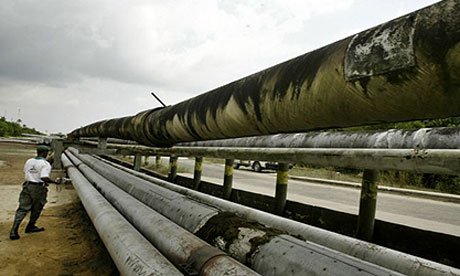Nigeria’s vital Trans Niger Pipeline (TNP) has been fully restored and is operating normally after last week’s explosion that temporarily disrupted crude flows, according to Renaissance Group spokesperson Tony Okonedo. The 450,000-barrel-per-day conduit, one of two pipelines exporting Nigeria’s premium Bonny Light crude, resumed operations Tuesday following urgent repairs to damage caused by the March 19 blast.
“We’ve successfully completed repairs and implemented additional security measures along the pipeline right-of-way,” Okonedo told Reuters, though declining to specify whether production had fully returned to pre-incident levels. During the outage, Renaissance had rerouted some volumes through alternative lines to maintain exports from Africa’s largest oil producer.
The incident marked the first major disruption since Shell completed the $2.4 billion sale of its onshore assets to Renaissance in January. Security analysts note this attack follows a concerning pattern – Nigeria has recorded 17 pipeline sabotages this year alone, already half of 2024’s total incidents. “These disruptions aren’t just about stolen crude anymore,” said energy consultant Rolake Akinkugbe-Filani. “Some attacks now reflect community grievances or attempts to derail the divestment process.”
Industry sources confirm the pipeline attack temporarily reduced Nigeria’s oil output by approximately 150,000 barrels per day, compounding existing production challenges. The country has struggled to meet its OPEC quota of 1.5 million bpd, with March output averaging just 1.32 million bpd before the incident.
Market analysts suggest the quick restoration helped prevent significant price impacts, with Bonny Light differentials holding steady at $1.85 above Brent. However, Renaissance faces mounting pressure to address the Niger Delta’s persistent security challenges as it assumes operatorship of these critical assets.









